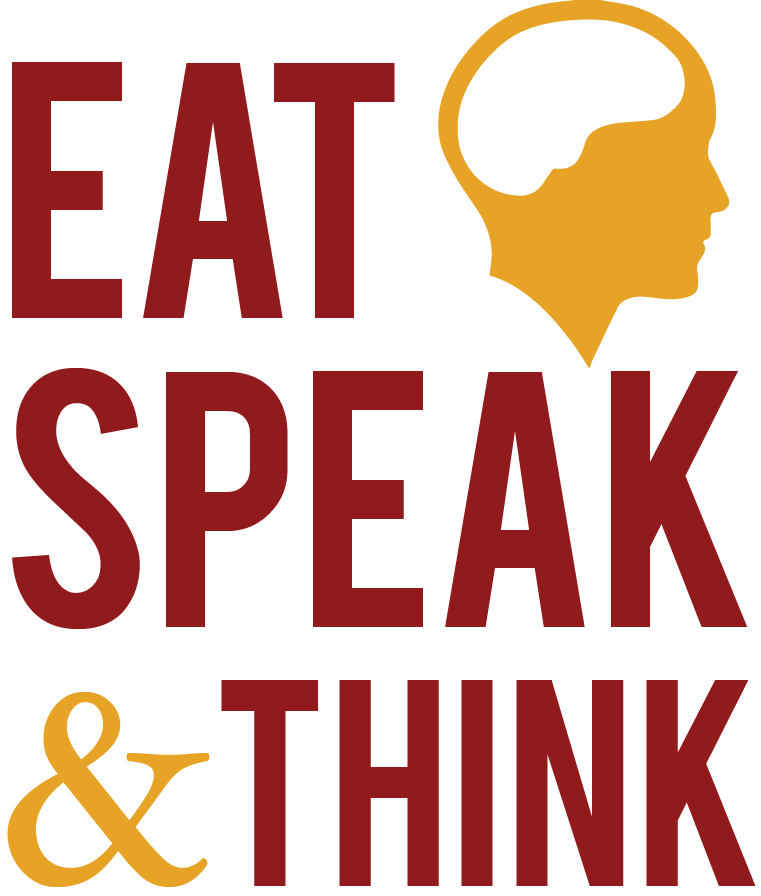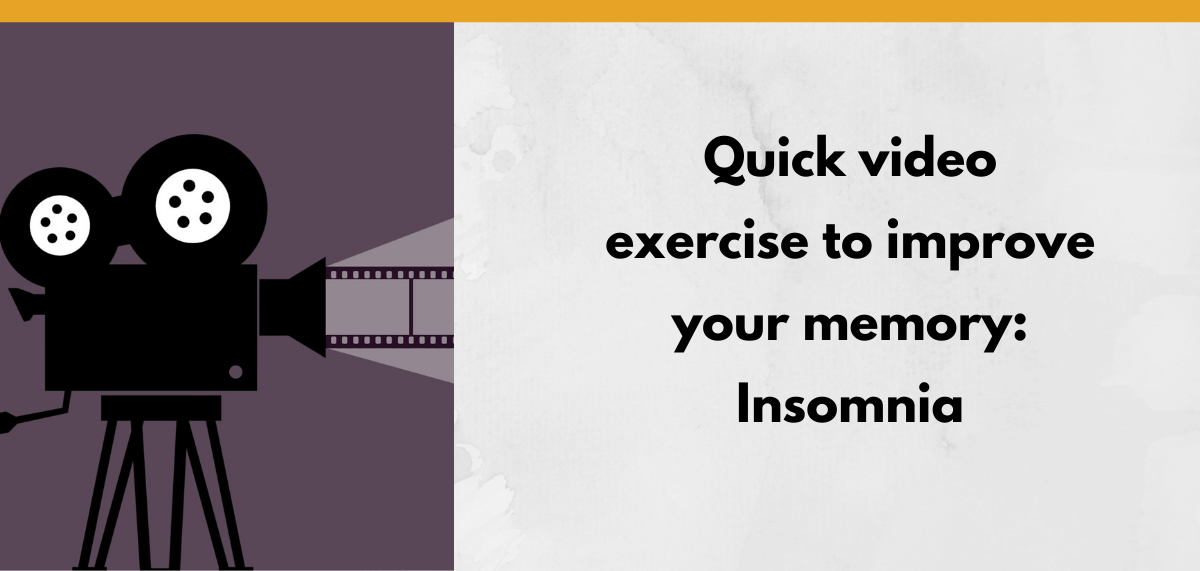In this post, I’m sharing a quick and easy memory exercise. Use this 2-minute video and these fill-in-the-blank sentences to challenge yourself or your patient to improve short term memory. I include ideas for how to make the exercise more or less difficult.
Free DIRECT download: Video exercise for memory: Insomnia (patient handout). (Email subscribers get free access to all the resources in the Free Subscription Library.)
Outline:
- Video: “How to deal with your insomnia.”
- Choose your level of difficulty.
- Tips for improving short term memory.
- Fill-in-the-blank sentences.
- Answer key.
- Related posts.
Video: “How to deal with your insomnia”
TED.com shares short talks by expert speakers on a wide variety of topics. In this exercise, we’re using “How to deal with your insomnia — and finally get to sleep” by Matt Walker, Ph.D.
The video is 2 minutes long, and a written transcript is available.
Choose your level of difficulty
There are many ways to make an exercise easier or harder. The general goal is to find an exercise that is somewhat challenging. If it’s too easy, it won’t help you improve. If it’s too hard, it will just be frustrating.
Here are some ideas:
- Easy: Fill in the answers as you watch the video. Pause the video as often as needed.
- Medium: Read the sentences before watching the video, but wait til the video is over before answering them.
- Hard: Watch the video before reading the sentences, then answer the questions.
- Challenge: Watch the video, then write down what you remember before reading the sentences.
Tips for improving short term memory
Watch the video in a quiet setting so you can concentrate.
Try silently repeating what the speaker says. This may be enough to help you remember key details.
Pause the video after something important and use one of your memory strategies to help it stick in your memory better.
Here are some common memory strategies:
- Repetition: Repeat important information in your head or aloud.
- Association: Try to link important information to something you already know.
- Visualization: Try to imagine or picture the information.
- Writing: Write key information down on scratch paper.
Fill-in-the-blank sentences
- At least 1 person out of every _______ will experience some form of insomnia in their lifetime.
- Insomnia is when you have trouble __________________ asleep, _________________ asleep, or you just don’t feel _______________________ by your sleep the next day.
- People try many things to help, but not all of them ___________________________.
- Two popular options are _____________________ and THC, the active component of cannabis. But both will worsen insomnia in the long-term.
- Even melatonin only improves sleep ____________________ by just a few percent.
- Thankfully, there is a much better approach to improving sleep: Cognitive Behavioral ____________________ for Insomnia, or CBTI.
- You can work with a clinician (in person or online) to do CBTI for several ________________.
- CBTI helps you change your ______________________, your beliefs, and your general stress about sleep.
- Many studies show that CBTI is just as effective as __________________________ in the short term.
- CBTI has no ___________________________ side effects.
- The sleep benefits can last for ___________________________.
Answer key
- One of every 3 people
- Falling asleep, staying asleep, or you just don’t feel refreshed
- Work especially well
- Alcohol
- Quality (or efficiency)
- Therapy
- Weeks
- Habits
- Sleeping pills
- Negative
- Years
Related Eat, Speak, & Think posts
- Improve auditory memory with this easy exercise.
- Improve your working memory with 60 quick exercises.
- Improve daily skills with this easy calendar exercise.
- How to improve short term memory.
Free DIRECT download: Video exercise for memory: Insomnia (patient handout). (Email subscribers get free access to all the resources in the Free Subscription Library.)
Featured image by Mohamed Hassan from Pixabay.
Lisa earned her M.A. in Speech-Language Pathology from the University of Maryland, College Park and her M.A. in Linguistics from the University of California, San Diego.
She participated in research studies with the National Institute on Deafness and other Communication Disorders (NIDCD) and the University of Maryland in the areas of aphasia, Parkinson’s Disease, epilepsy, and fluency disorders.
Lisa has been working as a medical speech-language pathologist since 2008. She has a strong passion for evidence-based assessment and therapy, having earned five ASHA Awards for Professional Participation in Continuing Education.
She launched EatSpeakThink.com in June 2018 to help other clinicians be more successful working in home health, as well as to provide strategies and resources to people living with problems eating, speaking, or thinking.



Be First to Comment